On View
Artists Grapple With the Meaning of Motherhood in a New York Gallery Show. Here’s What They Say Inspired Their Work
13 women artists have contributed work to Trotter and Sholer gallery's show "A Suitable Accomplishment."
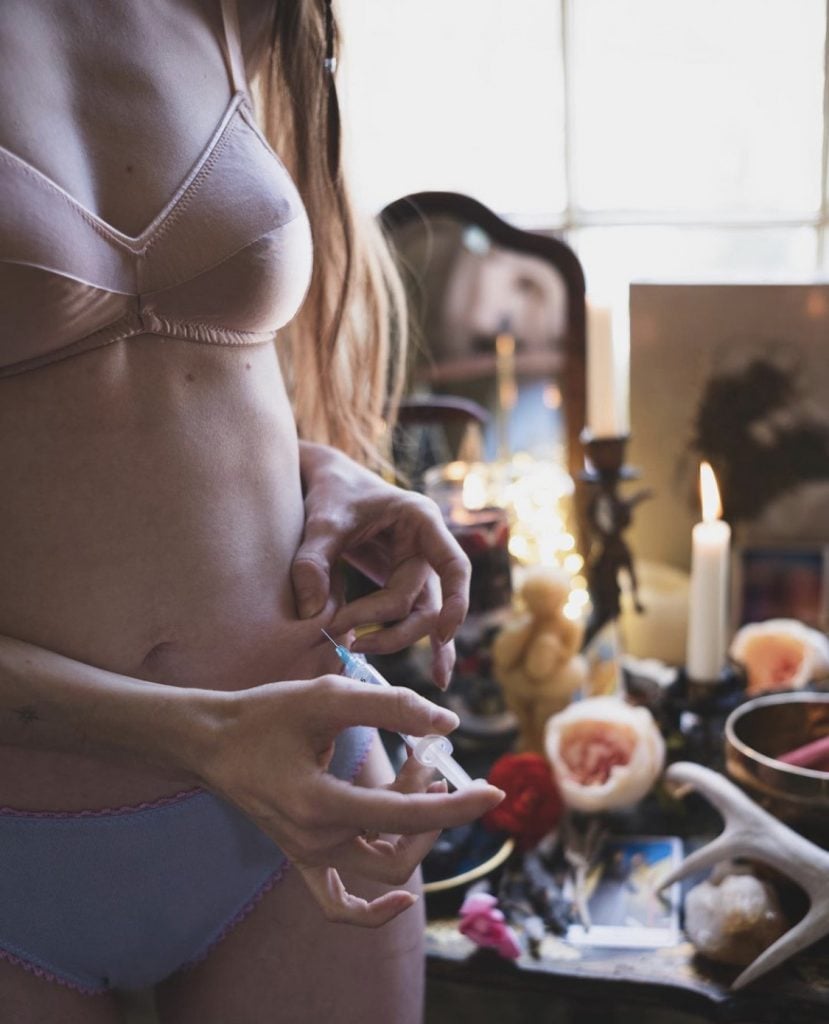
13 women artists have contributed work to Trotter and Sholer gallery's show "A Suitable Accomplishment."

Sarah Cascone

The questions of motherhood—whether to do it, how, when—is a major part of the female experience, and comes with enormous pressures related to the biological clock and societal expectations.
At New York’s Trotter and Sholer gallery, the varied ways that women artists respond to this question is the subject of its current group show, “A Suitable Accomplishment.”
The title is taken from the groundbreaking 1971 Linda Nochlin essay, “Why Have There Been No Great Women Artists?,” which examined the social constructs that have kept women artists from receiving the same recognition as that of their male counterparts. (Spoiler alert: the demands of motherhood have sabotaged many a promising career.)
And though the essay is more than 50 years old, it speaks to issues women still face in the year 2023.
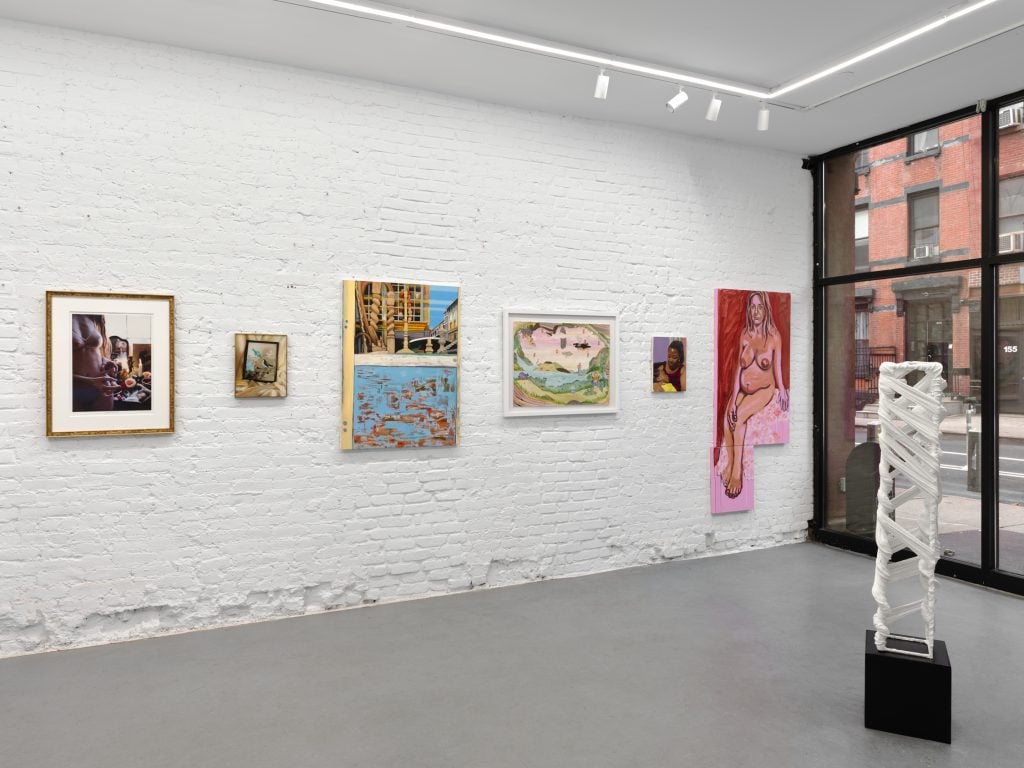
“A Suitable Accomplishment” on view at Trotter and Sholer. Photo courtesy of Trotter and Sholer.
“I’m not sure that we’ve progressed as far as we like to think we have,” gallery cofounder Jenna Ferrey told Artnet News. “And we definitely haven’t gone as far as we need to go!”
Ferrey focused the show on a small group of women artists whose differing experiences of motherhood painted a wide picture of the subject.
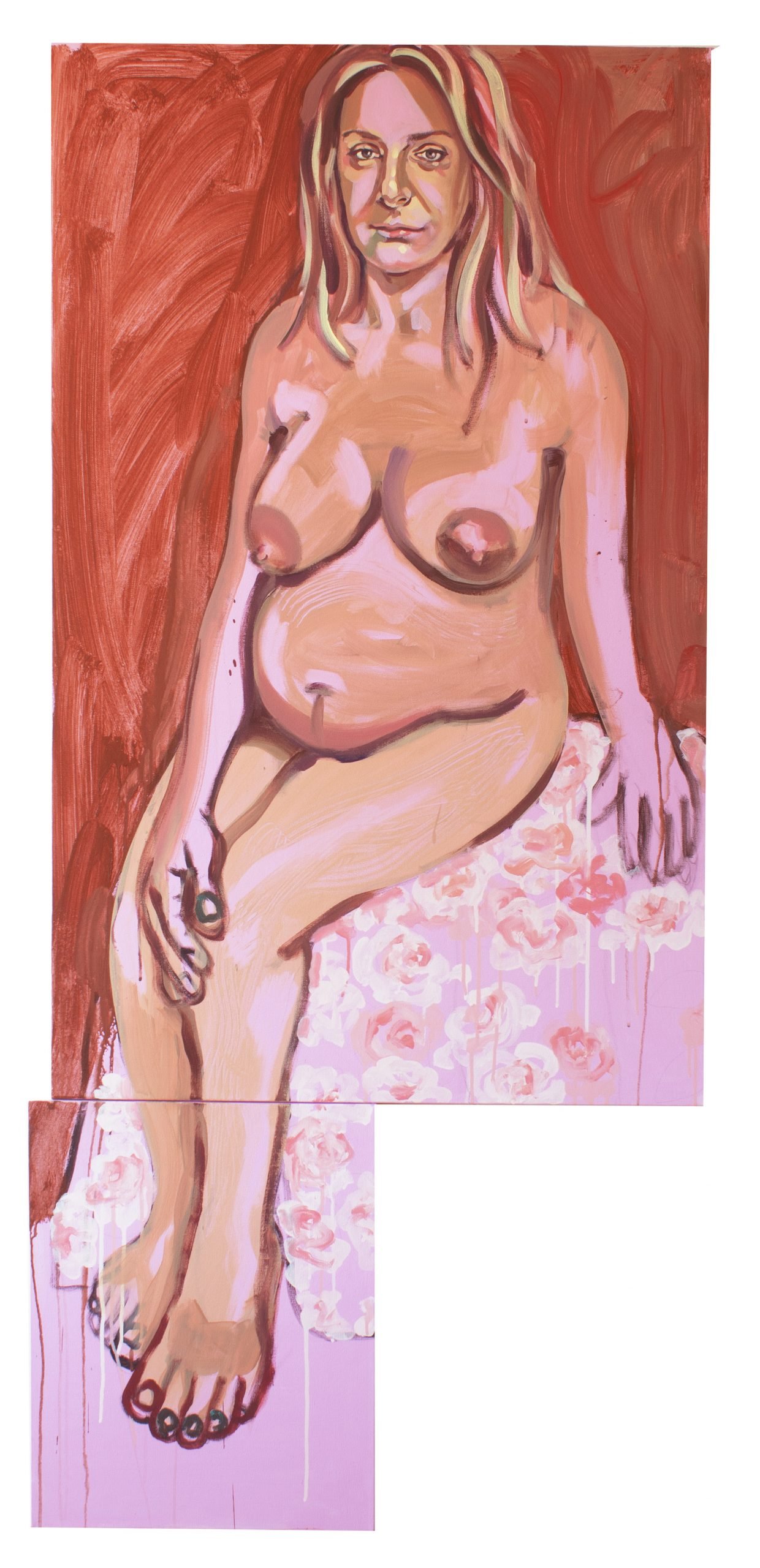
Barbara Ishikura, Jen (2022). Photo courtesy of Trotter and Sholer, New York.
For some artists, motherhood is a creative inspiration, as with Fernanda’s Feher’s watercolors, which were “art directed” by her two-year-old, who asks her to incorporate elements like toys, ice cream, and cupcakes into her delicate paintings.
Others reference multiple generations of women. One of Jessica Frances Grégoire Lancaster’s finely detailed paintings on glass is based on a drawing by her grandmother, with her mother’s reflection subtly included in the work to tie the three women together.
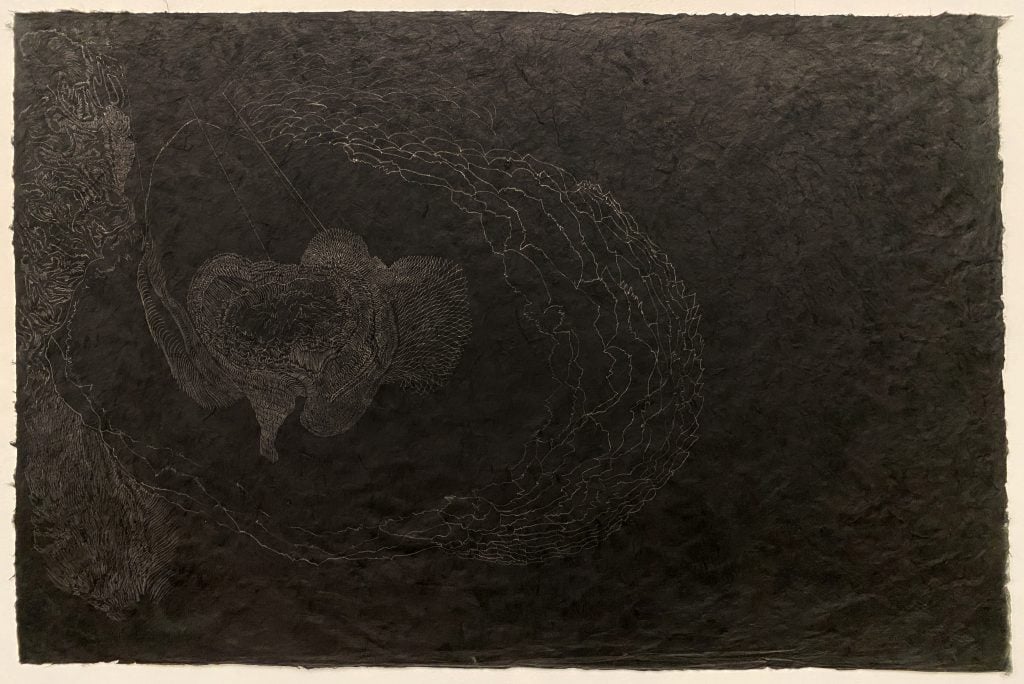
Bahar Behbahani, Untitled (Immigrant Flora) 2018. Photo courtesy of Trotter and Sholer, New York.
There’s even a mother-daughter duo, Shamsy Behbahani and Bahar Behbahani, whose works appear in the show.
“They created individual works, but they are in conversation with each other,” Ferrey said. “Bahar’s mother created a large hanging installation piece out of silver and copper thread which is hung so the light casts a shadow from Shamsy’s piece onto Bahar’s piece.”
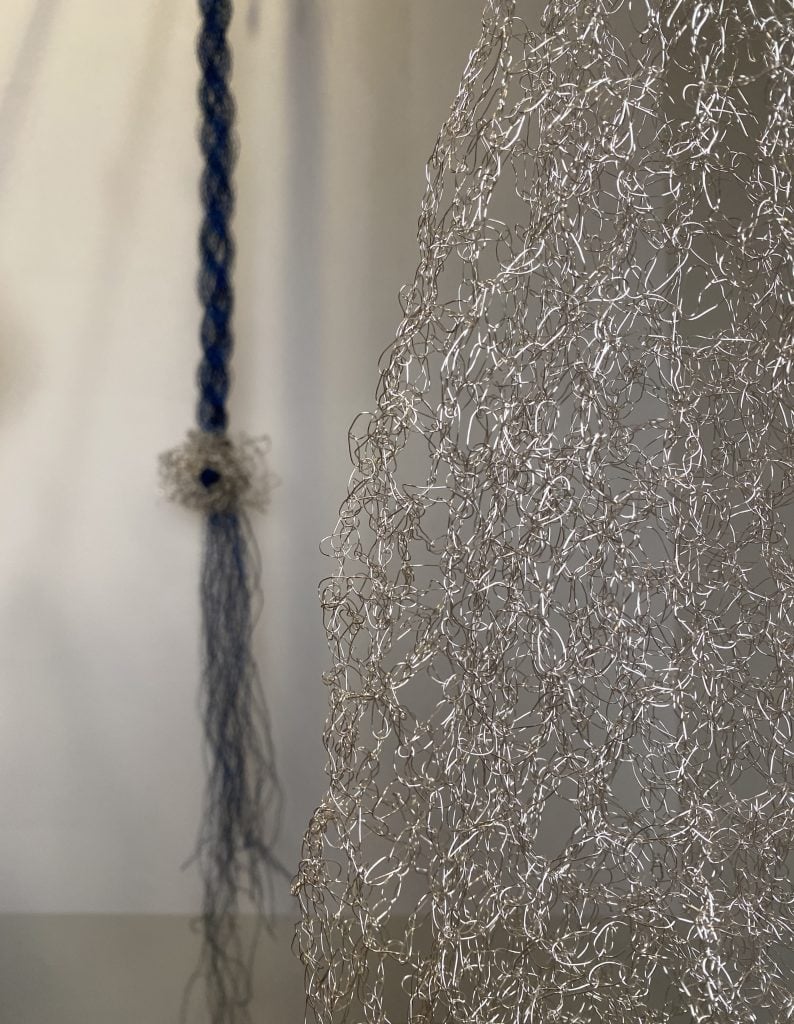
Bahar Behbahani and Shamsy Behbahani, All the Sea for You All the Pain for Me (2022). Photo courtesy of Trotter and Sholer, New York.
The 13 featured artists in the show include both mothers and women who have decided not to have children of their own, as well as women who haven’t decided one way or another—a question that Ferrey, who has decided she does not want to have children, has grappled with herself.
“Its something that’s been on my mind lately, and it comes up in conversations with friends, both those who have children and those who are choosing not to,” Ferrey said. “But there’s social pressure no matter which position you take. And this is a conversation that almost probably every single woman could contribute something to.”
See what some of the women in the show had to say in their artist statements about the question of motherhood and how it relates to their work.
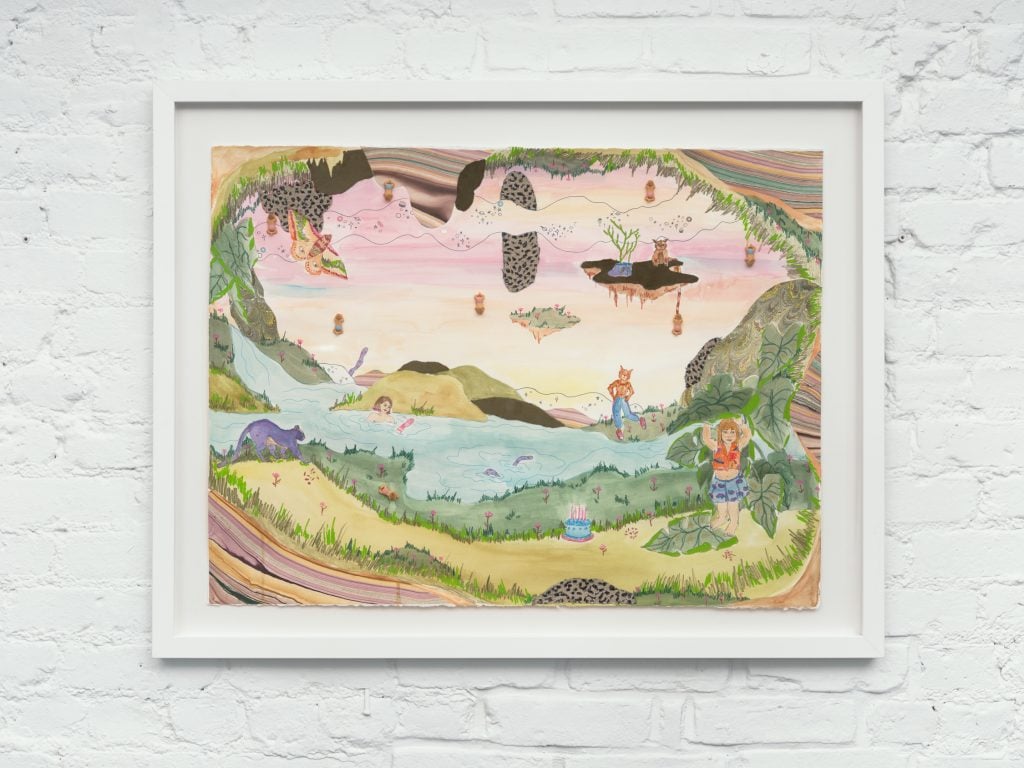
Fernanda Feher, Lilyland (2022). Photo courtesy of Trotter and Sholer, New York.
“As an artist, who is a single parent most of the time, I find it challenging not being able to go work whenever inspiration comes, and it is difficult for inspiration to come when having no alone time, having to do so many things at the same time and carrying so much responsibility by myself,” Fernanda Feher said. The artist credited her “infantile universe of imagination,” saying, “I can easily join my child in her fantasy to play and welcome her into creating worlds with me such as the ones we painted and drew together for this exhibition.”
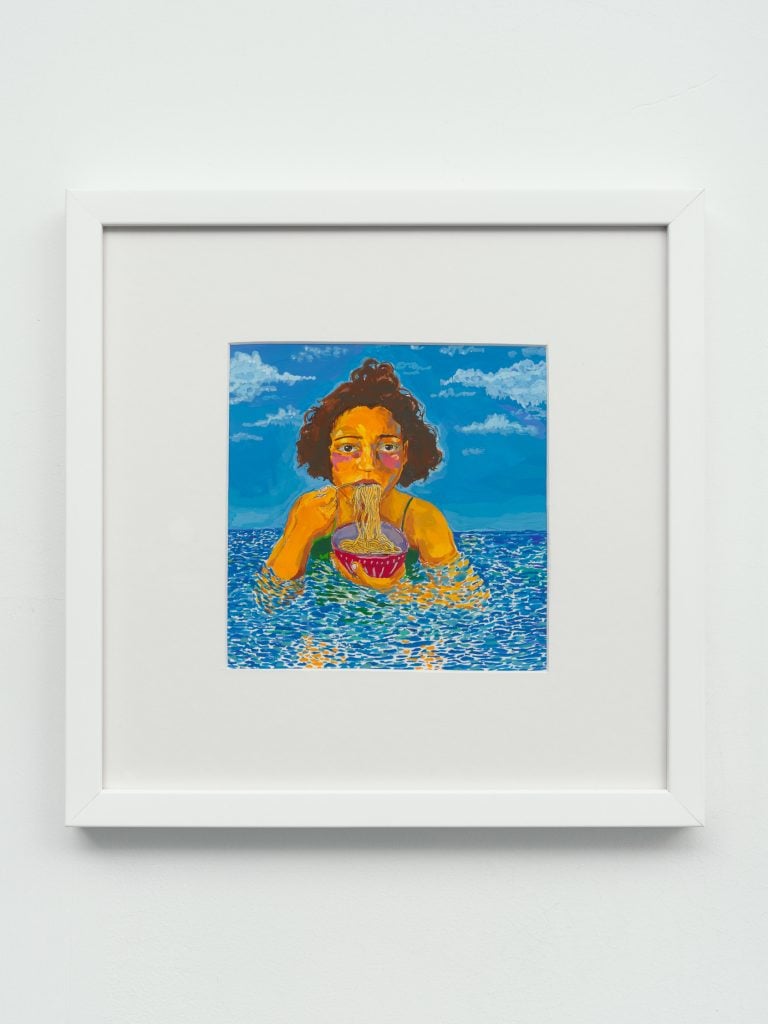
Isabelle Higgins, A Feast (2021). Photo courtesy of Trotter and Sholer, New York.
“Our culture does not support mothers or artists enough and this is something that comes to the forefront of my mind while weighing the option of taking on the role of motherhood,” Isabelle Higgins said. “So for now, I am content with mothering my artistic works through care, time, and dedication.”
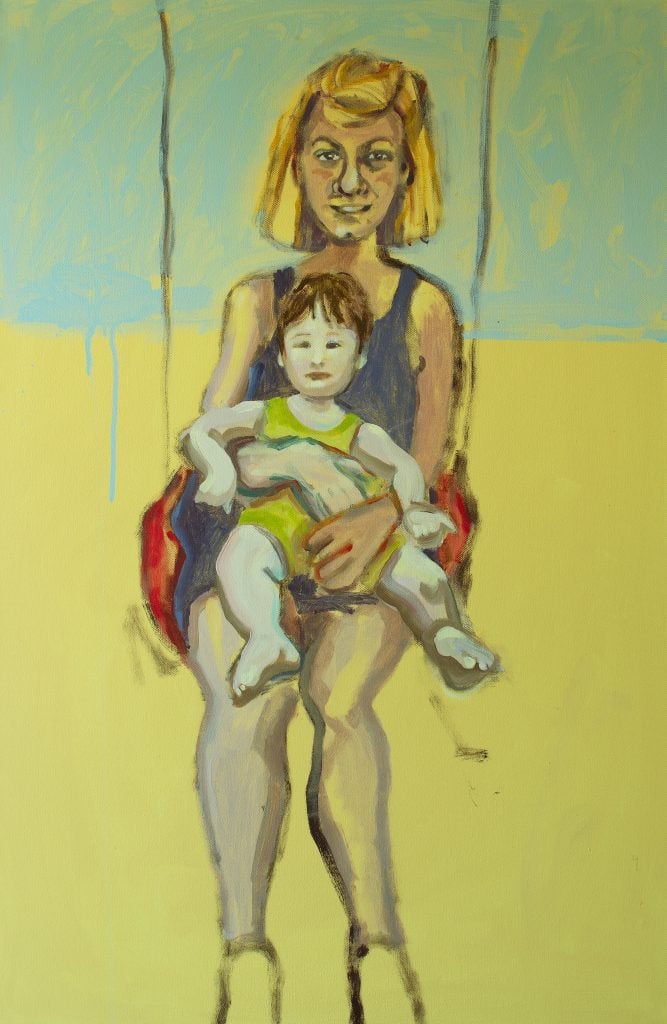
Barbara Ishikura, Holding Sho on Swing (2022). Photo courtesy of Trotter and Sholer, New York.
“When I gave birth to my children in the late 1980s, there was very little support for new mothers experiencing the demands of shifting cultural roles around career and childcare,” Barbara Ishikura said. “In my painting Holding Sho on Swing, I try to visualize the feelings of isolation that many young mothers experienced at that time. Looking at young women today, I see their vulnerability, but I also witness a level of confidence that was unfamiliar to me.”
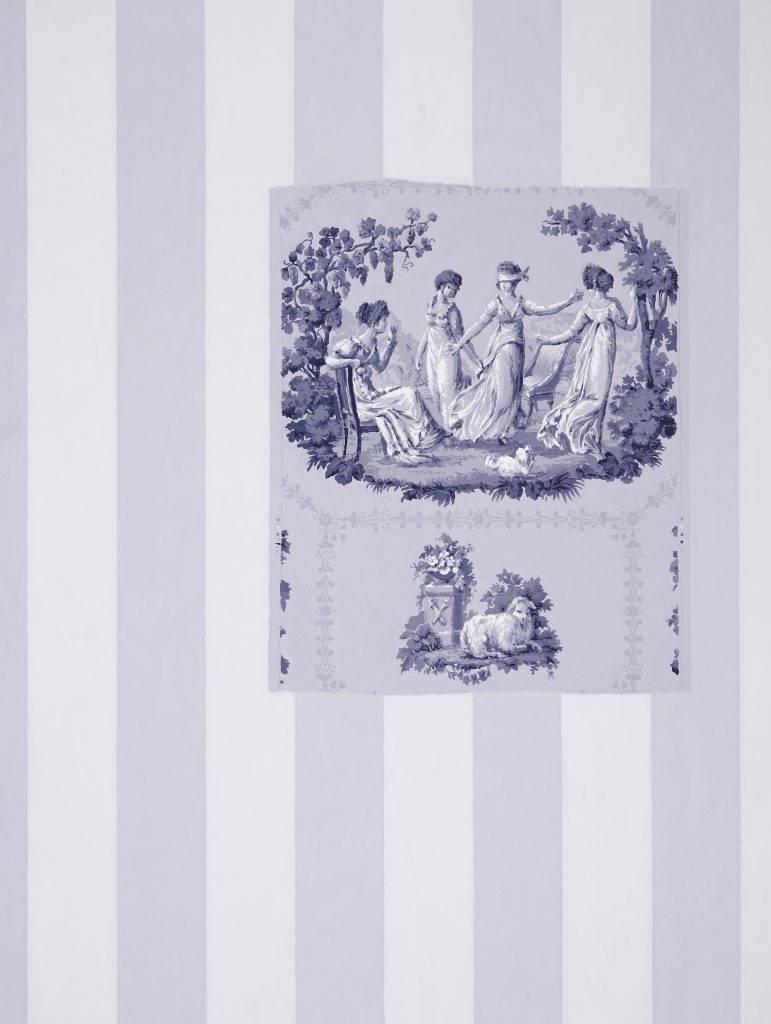
Alex McQuilkin, Untitled (Blind Man’s Bluff), 2019. Photo courtesy of Trotter and Sholer, New York.
“Prior to having children, that idea of self, though far from uncomplicated, could be approached in a conceptual way. Since becoming a mother, even the fantasy of a singular self is out of the question,” Alex McQuilkin said. “After having my children, I began to layer archival fragments of historical wall coverings in a claustrophobically shallow trompe l’oeil space on top of repeat patterns. The specificity of these material objects with their cracks, wrinkles, and imperfections, complicates the façade of neutrality in the repeat patterns and disrupts their grid-like ability to run rampant below the surface.”
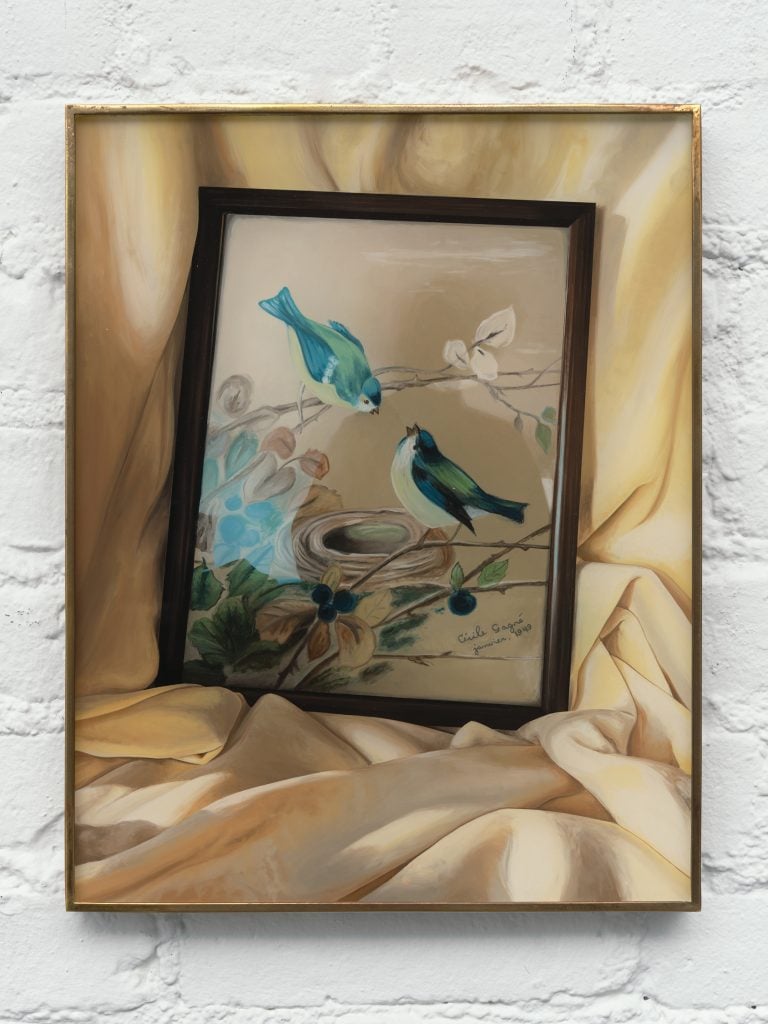
Jessica Frances Grégoire Lancaster, Trois gestes (Three Gestures) 2022. Photo courtesy of Trotter and Sholer, New York.
“Outside of this trio’ed collaboration, the women who precede me possess their own creative practices to sustain a fruitful life,” Jessica Frances Grégoire Lancaster said. “The act of making for us is as ordinary as drying dishes. My grandmother supplemented her husband’s income by selling her fiber arts, woven on her basement looms in order to dress her children. My mom fills her days with quilting after retiring from a career in cancer research, having fought to be considered both a scientist and mother. And I, after losing a child, have enveloped myself in painting.”
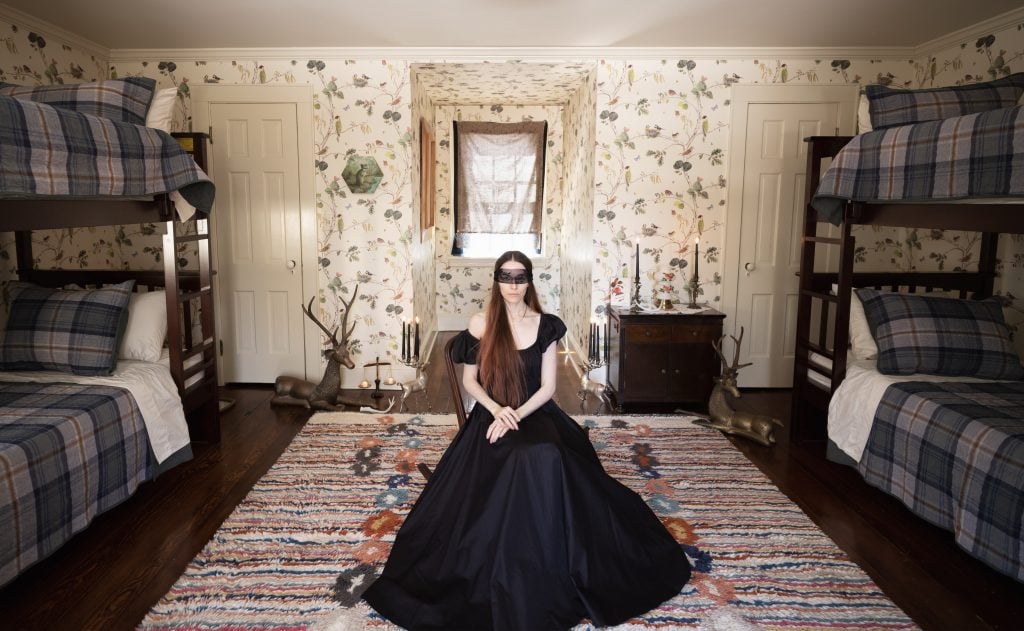
Anna Marie Tendler, Good Mourning (2021). Photo courtesy of Trotter and Sholer, New York.
“I do not particularly want children, yet at 36 I froze my eggs for fear I might change my mind,” photographer Anna Marie Tendler, who divorced her husband in 2021, said. “At first glance, my two works may appear to tell the story of a woman longing for motherhood, but I urge the viewer to consider the patriarchal conditioning that leads to this interpretation. Why does a woman clad in black and positioned in a room of empty twin beds signal loss? Why are we quick to assume she is sad? Perhaps she is Lilith, first wife of Adam, who in refusing to submit to her husband, left the Garden of Eden to become the figure of primal rage, stealing men’s sperm and devouring their babies in the dark of the night.”
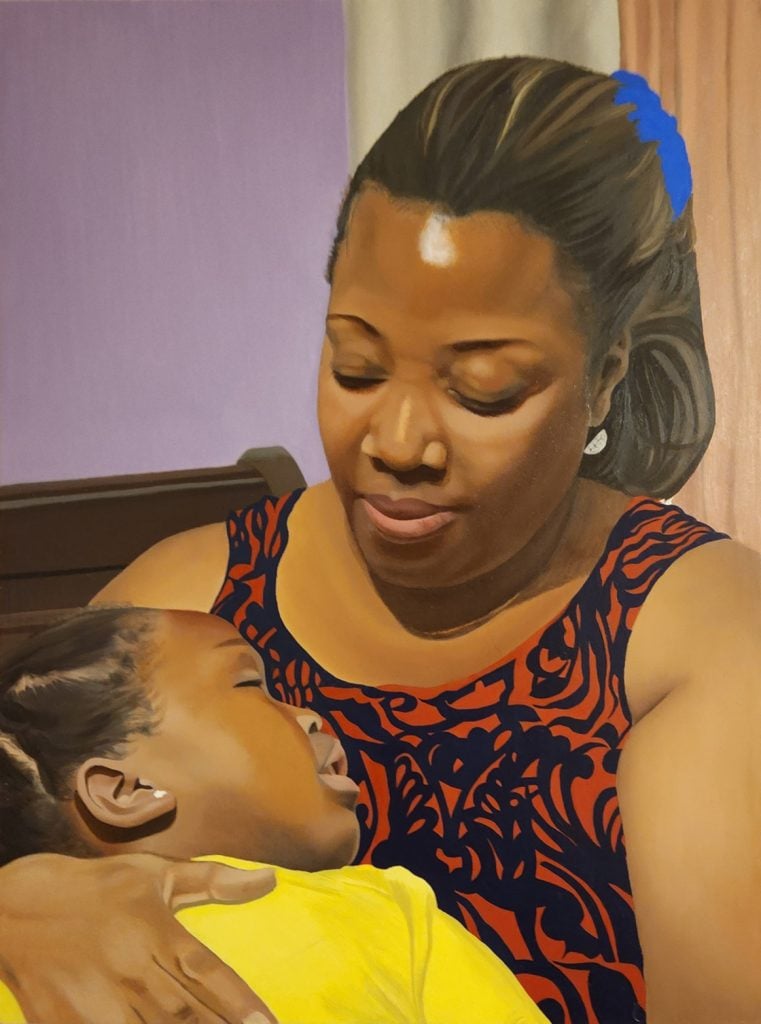
Shantel Miller, Sherri and Sheryl (2018). Photo courtesy of Trotter and Sholer, New York.
“These pieces are a labor of love for Black mothers in my life and for those who were not able to pro- vide love in the ways needed,” Shantel Miller said.
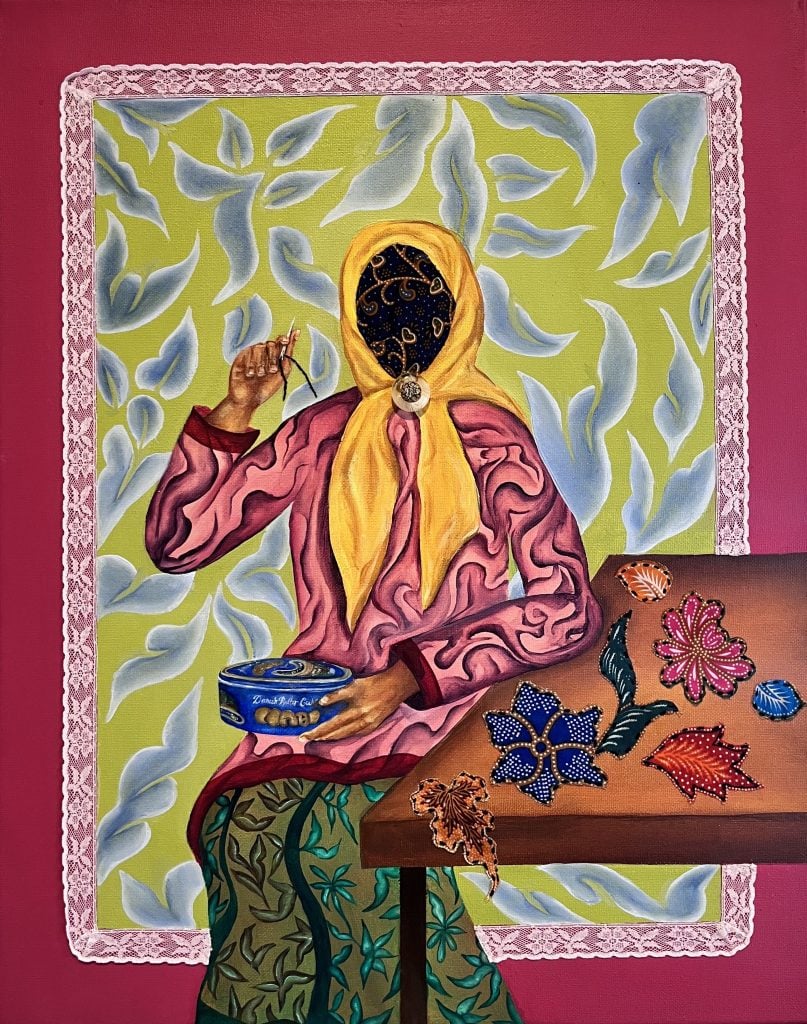
Azzah Sultan, The Sewing Kit (2022). Photo courtesy of Trotter and Sholer, New York.
“Although we may grow up with our mothers, we never truly know their past and who they were before motherhood. These are conversations that are difficult to have with older generations, and I wish to explore it through a memory box,” Azzah Sultan said. “Here the biscuit tin has been reappropriated. Inside are pieces of fabric that hold personal stories. My mother starts to unveil a few but still keep some for herself.”
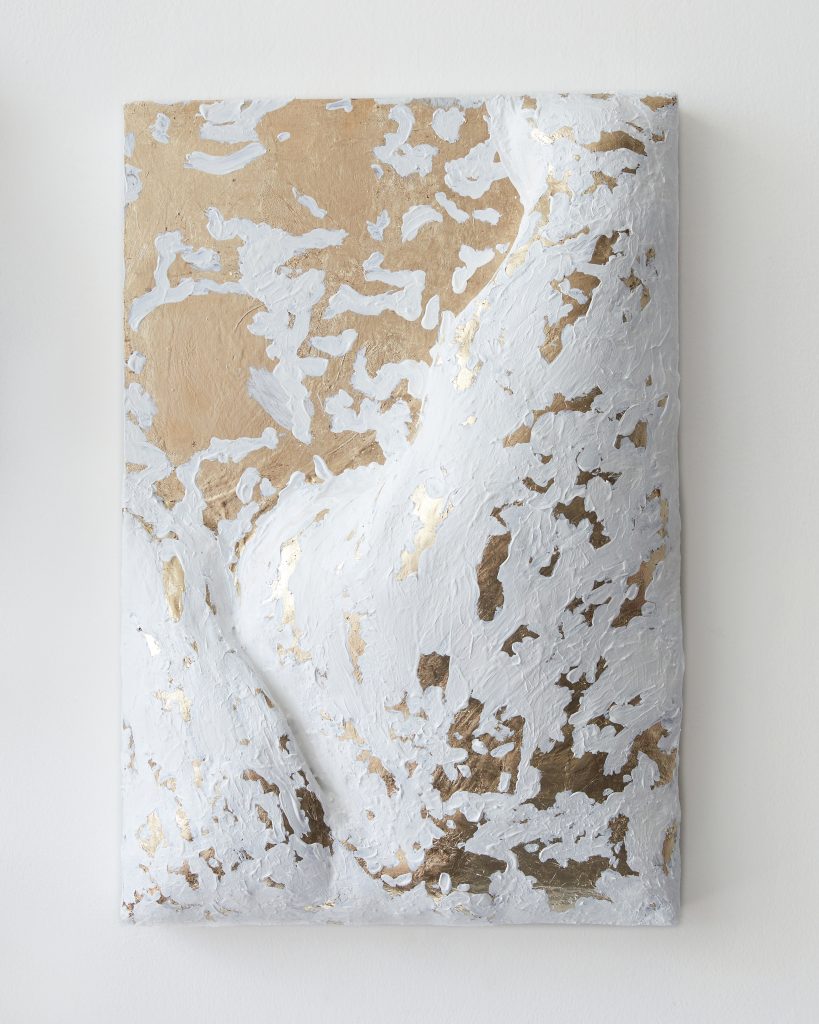
Chellis Baird, Hope (2022). Photo courtesy of Trotter and Sholer, New York.
“Artists, like mothers, also wear many hats, often functioning as both assistant and boss,” Chellis Baird said. “The process of creation is often a juggle of several of these roles, with moments, sometimes unexpectedly, of absolute joy. Both job descriptions include the need for patience, love, and problem solving, with the witnessing of growth acting as a constant motivator and source of reward.”
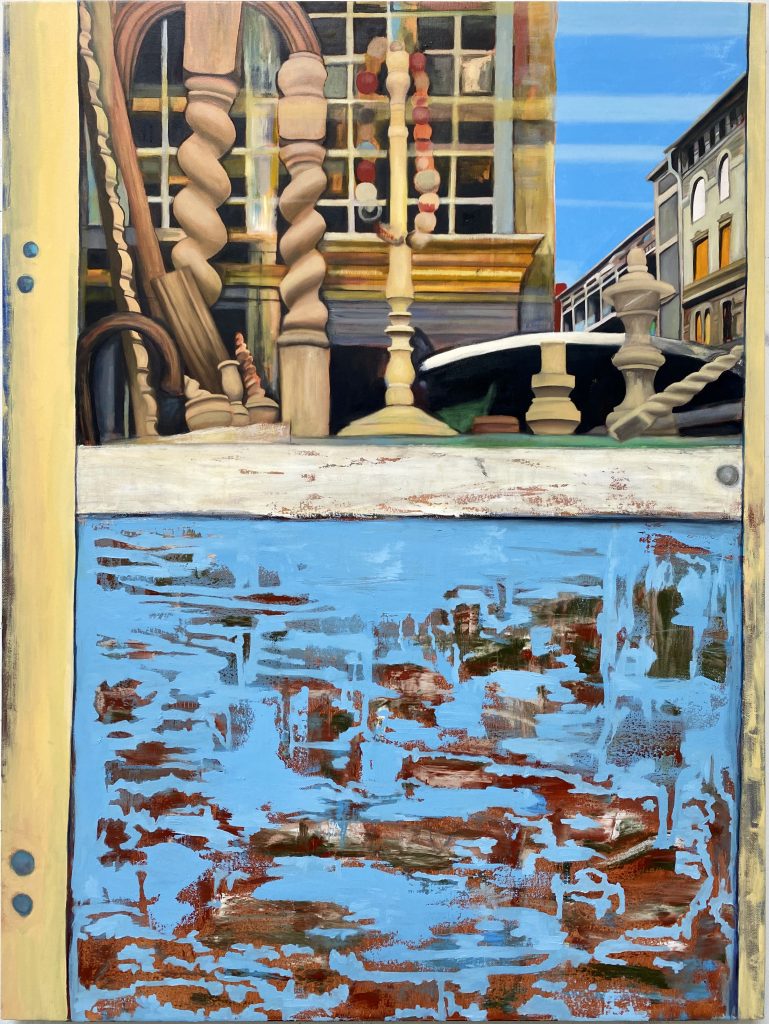
Marika Thunder, Hungarian Woodshop (2022). Photo courtesy of Trotter and Sholer, New York.
“My mother is Hungarian and an artist herself. She didn’t allow her budding career and the inevitable challenges that came with raising a daughter to prevent her from achieving her dream. I’ll always admire her strength and courage to follow her own intuition,” Marika Thunder said. “The intuition of a mother, and intense psychic bond with the daughter always felt sacred to me. Though I am not a mother to a child, I feel very motherly toward each painting I make since they are objects that I’ve materialized from the ineffable parts of my lived experiences.”
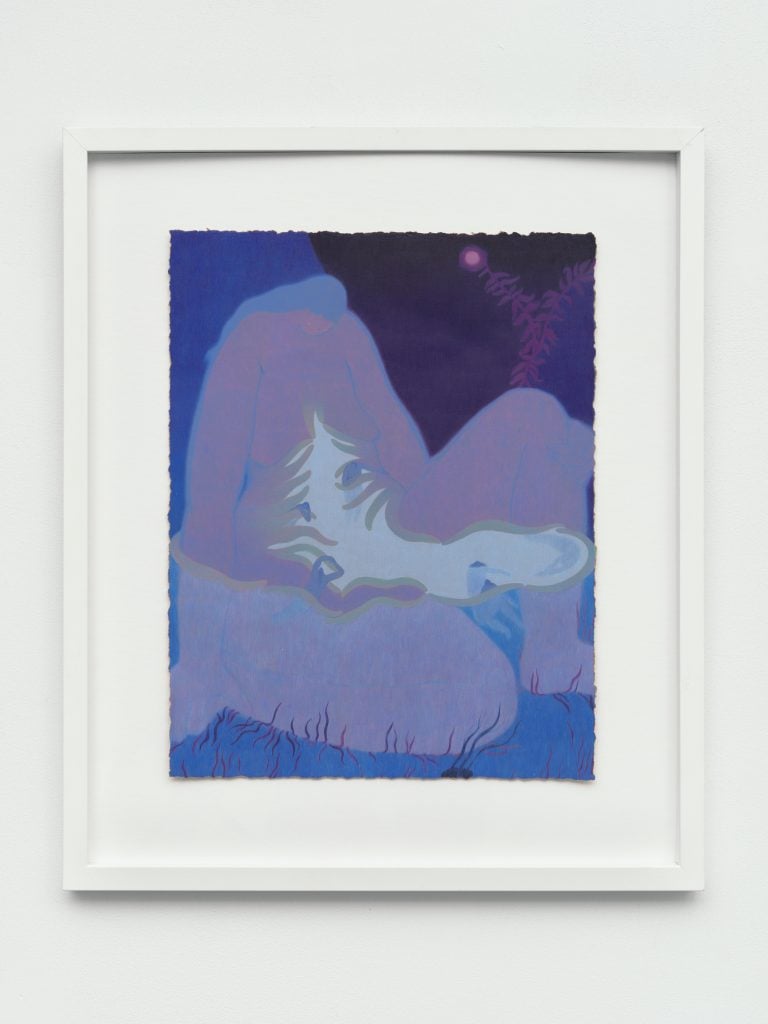
Lydia Baker, Birth of an Idea (2022). Photo courtesy of Trotter and Sholer, New York.
“I’m interested in the psychological aspects of having an internal calendar—ovulation in particular, as it signifies letting go, an end, or potentially a beginning. My physical and mental experience with ovulation changes each year, and now in my early 30s, it’s become more pronounced,” Lydia Baker said. “As someone who adores children and doesn’t have them, it’s been interesting seeing my maternal energy announce itself in the studio.”
“A Suitable Accomplishment” is on view at Trotter and Sholer, 168 Suffolk Street, New York, New York, January 14–February 18, 2023.